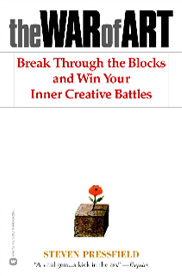It’s Easy to Write a Book. Right? Right?
 Back in Spring 2015, when the self-publishing phenomenon gathered momentum, I decided to write a book. I had done some research and had a good idea that I wanted to write something romantic with magical elements strewn in.
Back in Spring 2015, when the self-publishing phenomenon gathered momentum, I decided to write a book. I had done some research and had a good idea that I wanted to write something romantic with magical elements strewn in.
I grew up in Germany, and from early on, I was fascinated by fairy tales my grandmother used to tell me. Later, my parents encouraged my reading passion, and for Christmas, I received beautiful Reader’s Digest hardcover editions of 1001 Nights, Tales of the Caravan Serail, stories by Hans Christian Anderson, Bechstein, Grimm brothers, and collections of world legends. I devoured them all.
I knew my material. Couldn’t be too hard, then, to sit down and pen a love story set against the background of a magical parallel world, could it? I wrote 1500 words, submitted them to my local Writers Group, and got destroyed.
Writing a Book is Harder Than I Thought
“This reads like fan-fiction,” was one of the kinder comments. What a wakeup call! Apparently, the style of writing I was used to didn’t translate well for modern readers.
I dragged my sorry butt home and sulked. I nearly gave up the idea of writing altogether. Then I re-read my story a few weeks later, and some of it was really good. And some… just wasn’t.
Fast-forward a few more weeks. I listened to podcasts, bought some beginner writers’ courses online, and slowly began to understand why my first attempt had been so bad.
Ever heard of “Show, don’t Tell”? Yeah, I had told my story. When my heroine was sad, I’d written, “She was so sad that she cried.” Seriously.
Over the course of the next year, I learned how to outline. How to weave story strands. How to build a story arc with conflict and foreshadowing. How to write settings. How to avoid purple prose—the kind of dramatic, over-emotional writing that was popular in the nineteenth century. Boy, was there a lot to learn!
And once I’d figured out how to improve my actual writing, I realized that I had to learn about marketing and publishing as well.
By the time I was ready to return to my book, it was nearly two years later.
Writing That Book Should be Child’s Play By Now
 The one thing I had still not mastered was consistency. I’d go WEEKS without putting down a single word. Frustrating, to say the least! I had a really cool concept, an outline, two memorable main characters, the title for the first, and ideas for two more books.
The one thing I had still not mastered was consistency. I’d go WEEKS without putting down a single word. Frustrating, to say the least! I had a really cool concept, an outline, two memorable main characters, the title for the first, and ideas for two more books.
Every morning I got up, had a cup of tea and sat down to write. Then I’d remember I needed to fold the laundry. And do the dishes. And get lunch ready. Steven Pressfield writes about this phenomenon in his inspiring book The War of Art:
“Are you a writer who doesn’t write, a painter who doesn’t paint, an entrepreneur who never starts a venture? Then you know what Resistance is. (…) Resistance cannot be seen, touched, heard or smelled. But it can be felt. It is experienced as a force field emanating from a work-in-potential. It’s a repelling force. It’s negative. Its intention is to shove the creator away, distract him, sap his energy, incapacitate him. (…) If Resistance wins, the work doesn’t get written.”
And yet, at this very moment, I’ve written and published two novels and four short stories (in two very different genres). I’m writing a novella, have outlined the third novel in the Spirit Walker series, and I’ve started writing a prequel in the same series. I have three books planned in a brand-new series, and ideas for many more in my ideas folder.
How Did I Finally Write Two Books (And More)?
 Last year, I came across a series of writing exercises which led me to The Write Practice website.
Last year, I came across a series of writing exercises which led me to The Write Practice website.
The site owner Joe Bunting runs several programs aimed at motivating and teaching writers. One particularly cool one is The 100 Day Book Program.
Over the period of three-and-a-half months, writers must post a chapter each week. If they miss the deadline three times, they forfeit $100 which will be paid to the IRS. If they succeed, the money is returned to them. There is a fee involved which covers daily lessons, videos, mentors checking in with the writers.
Once the chapter is uploaded, the writer receives feedback from other participants, and has to provide feedback themselves to three authors. Kinda like a benevolent pyramid scheme!
The feedback was great and highly appreciated, but what made the program work for me was the accountability element. There were quite a few Thursday nights where I worked until late into the night to get my chapter done and uploaded.
The process didn’t run smoothly for me, but it got me 95% there after 100 days. I needed an extra week with my first book and an extra three weeks with my second. Most importantly though, I GOT THEM DONE! Two months later, they were edited and published as Spirit Hunger and Spirit Elfen.
Summary
For some reason, we writers are a fickle bunch. We talk ourselves out of writing every day, even though it’s our favorite thing to do in the world (mostly)!
Every time you start a new endeavor, be it getting fit, or completing a project, the first bit of advice you get is, “Find an accountability partner!”
I used to scoff at the idea. Until I tried it with writing. Knowing that there were people out there, waiting to hear how the story progressed, was a very powerful motivator. As powerful as potentially losing money to the IRS. Ugh.
The secret to writing, publishing, and becoming successful as a writer, is consistency. Find a mechanism to make yourself more consistent. You could do worse than checking out The Write Practice.
Let me know what you think in the comments below. Have you suffered from Resistance and its little brother Procrastination? How did you get over it?